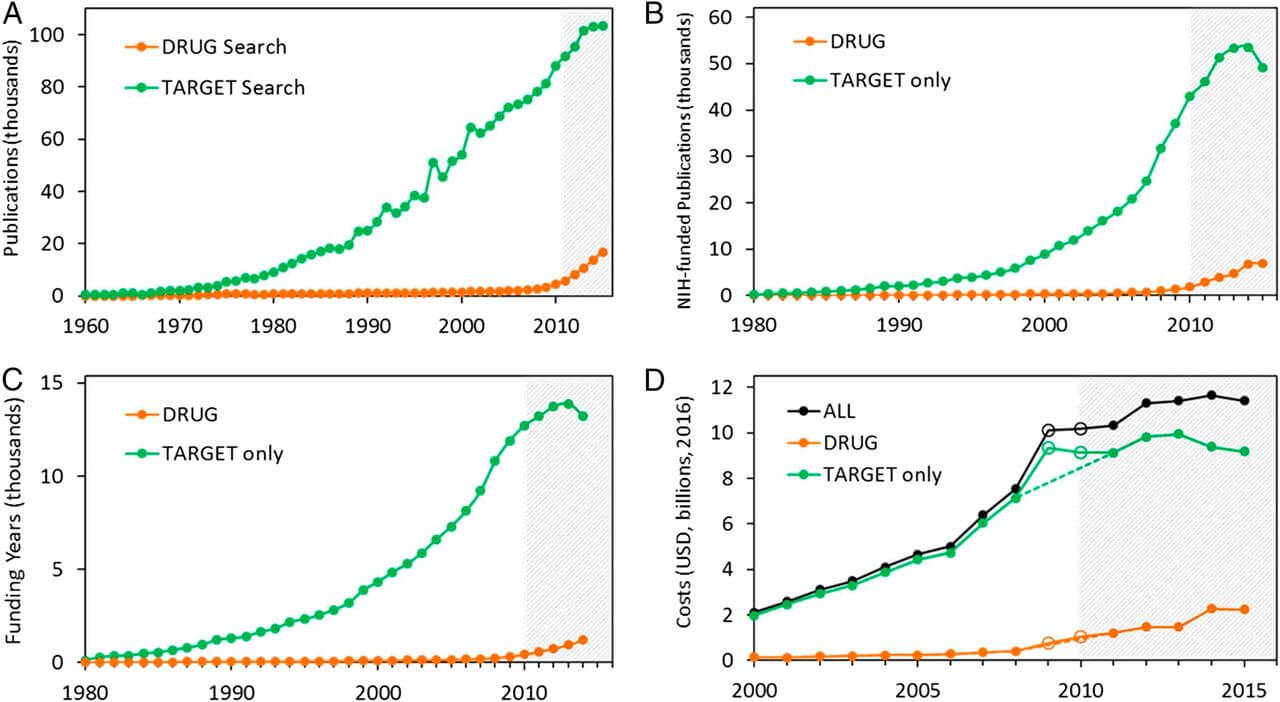The biotechnology industry stands at a critical crossroads, facing unprecedented challenges while simultaneously pioneering groundbreaking innovations. The sector continues to transform healthcare, agriculture, and industrial processes worldwide, yet must overcome significant hurdles to maintain its trajectory of growth and impact. Recent industry surveys and expert analyses reveal that biotech companies are grappling with complex regulatory environments, financial pressures, extended development timelines, ethical controversies, cybersecurity threats, and intense market competition. Understanding these challenges is essential not only for industry stakeholders but also for investors, policymakers, and healthcare professionals seeking to navigate this dynamic landscape. This comprehensive analysis examines the six most pressing issues confronting the biotechnology industry today, drawing on recent data and expert insights to provide a thorough assessment of the current state of biotech and strategies for overcoming these obstacles.
1. Navigating Complex Regulatory Landscapes
Regulatory compliance remains one of the most formidable challenges for biotechnology companies in 2025. As biotech innovations increasingly push the boundaries of existing regulatory frameworks, companies must adapt to ever-changing rules and requirements designed to ensure both safety and efficacy3. The regulatory environment continues to evolve at a pace that often lags behind technological innovation, creating significant gray areas and uncertainty for companies attempting to bring novel products to market.
The Trump administration’s return in January 2025 has already begun reshaping the regulatory landscape, with a renewed focus on deregulation and accelerated approval processes at the FDA6. These changes aim to shorten approval timelines and reduce barriers to market entry, potentially benefiting innovative therapy companies. However, this shift also raises concerns about maintaining rigorous safety standards while increasing approval speeds. Industry leaders must now navigate this changing regulatory terrain carefully, balancing the opportunities of streamlined processes with the imperative to ensure product safety and efficacy.
1.1 Evolving FDA Approval Processes
The FDA approval process remains a critical gateway for biotech products entering the U.S. market, and recent changes have created both opportunities and challenges. In 2024, the FDA approved 38 new molecular entities for therapeutic use, representing a decline from 47 approvals in the previous year1. This decrease underscores the growing complexity of the approval landscape, with clinical trials now facing increased data requirements, diversity mandates, and more rigorous evaluation criteria.
The current administration has signaled interest in exploring emerging technologies like artificial intelligence in clinical trials and approvals, potentially creating new pathways for innovative products6. However, industry experts caution that these changes must be implemented thoughtfully to maintain public confidence in regulatory oversight. Companies must now develop more sophisticated regulatory strategies that anticipate these shifts while ensuring their products meet all necessary safety and efficacy requirements. Successful navigation of these evolving processes requires early engagement with regulatory bodies and investment in specialized regulatory affairs expertise.
1.2 Global Regulatory Harmonization Challenges
For biotech companies operating internationally, navigating disparate regulatory environments across different regions presents a significant challenge. Despite efforts toward global harmonization, substantial differences persist in approval requirements, timelines, and compliance standards across major markets such as the United States, European Union, China, and Japan. These variations can significantly impact product development strategies, requiring companies to design clinical trials that satisfy multiple regulatory authorities simultaneously.
The lack of standardized approaches creates redundancies in testing and documentation, leading to increased costs and delayed market access. Biotech firms must often develop region-specific regulatory strategies, sometimes resulting in products being available in certain markets years before others. This regulatory fragmentation particularly impacts smaller biotech companies with limited resources, sometimes forcing difficult decisions about which markets to prioritize. Industry associations continue to advocate for greater international coordination, but progress remains incremental rather than transformative.
1.2.1 Regional Compliance Variations
Biotech companies must navigate a complex web of regional regulations that can vary dramatically in their requirements and implementation. For instance, data privacy regulations such as GDPR in Europe impose stringent requirements on the handling of patient information, while other regions may have less comprehensive frameworks. These variations create compliance challenges, particularly for clinical trials conducted across multiple countries. Companies must implement systems capable of adapting to these different requirements while maintaining consistent standards.
The complexity increases when considering regulations specific to emerging technologies like gene editing, where some regions have embraced more permissive approaches while others maintain strict limitations. This regulatory patchwork creates strategic dilemmas for companies developing cutting-edge therapies, sometimes influencing decisions about where to conduct research or launch products. Successful navigation of these regional variations requires sophisticated global regulatory intelligence and country-specific expertise, resources that may be beyond the reach of many smaller biotech firms.
1.3 Strategies for Regulatory Success
Leading biotech companies are adopting proactive approaches to regulatory challenges, engaging with authorities early and continuously throughout the development process. This strategy allows for alignment on expectations and requirements before significant resources are committed to specific development pathways. Regulatory scenario planning has become increasingly important, enabling companies to anticipate potential obstacles and prepare alternative approaches.
Investment in regulatory expertise has become a competitive necessity rather than an optional expense. Companies that build strong regulatory affairs teams with deep knowledge of specific therapeutic areas and technologies gain significant advantages in navigating approval processes. Additionally, participation in regulatory innovation programs, such as the FDA’s Complex Innovative Trial Designs Pilot Program, provides opportunities to explore novel approaches to clinical development while maintaining open communication with regulators. These strategic investments in regulatory capabilities can substantially reduce time-to-market and development costs while enhancing the probability of approval success.
2. Financial Pressures and Funding Challenges
The financial landscape for biotech companies in 2025 presents a complex mix of opportunities and challenges. Despite strong overall investment in the sector, individual companies face substantial hurdles in securing adequate funding throughout the lengthy development cycle3. The high costs and extended timelines associated with biotech innovation create unique financial pressures that require sophisticated capital strategies and careful portfolio management.
For many biotech firms, particularly those in early stages, access to sufficient funding remains a persistent challenge that can dictate research priorities and development timelines. The current economic climate, characterized by elevated interest rates and investor caution toward high-risk ventures, has intensified funding challenges for many companies. This environment has led to increased scrutiny of biotech business models and heightened expectations for demonstrable progress toward commercialization, creating additional pressures on research-focused organizations.
2.1 The High Cost of Biotech Innovation
The financial demands of biotech innovation continue to escalate, with the average cost of bringing a new drug to market now exceeding $2 billion when accounting for the expense of failed candidates. This massive investment requires substantial capital reserves and often necessitates a series of funding rounds or strategic partnerships to sustain development through to commercialization. The lengthy development timeline, frequently spanning a decade or more, further complicates financial planning and creates extended periods without revenue generation.
These financial realities have profound implications for research priorities and business models. Projects with clearer paths to market and substantial revenue potential often receive preferential resource allocation, sometimes at the expense of more innovative but riskier approaches. This financial pressure can particularly impact research into rare diseases or conditions prevalent in lower-income regions, where market returns may be less certain. Industry leaders must balance scientific opportunity with financial sustainability, making difficult decisions about which projects to advance and which to deprioritize or abandon.
2.2 Venture Capital Trends in Biotech
Venture capital remains a crucial funding source for biotech innovation, but investment patterns have evolved significantly in recent years. Early-stage funding has become increasingly competitive, with investors showing preference for companies with established scientific validation and clear commercial potential. This shift has created a more challenging environment for very early-stage companies still developing proof-of-concept data, sometimes referred to as the “pre-seed gap.”
Simultaneously, later-stage private financing rounds have grown substantially in size, allowing companies to remain private longer before considering public markets. This trend has created a bifurcated funding landscape where well-established private companies can access substantial capital while newer entrants face intense scrutiny. Geographic concentration of venture funding also persists, with biotech hubs like Boston, San Francisco, and increasingly Shanghai capturing disproportionate investment. Companies outside these established ecosystems often face additional hurdles in attracting capital, despite potentially groundbreaking research.
2.3 Managing the Patent Cliff and Revenue Protection
The looming patent cliff represents a significant financial challenge for established biotech companies, with more than $300 billion in sales at risk through 2030 due to expiring patents on high-revenue products7. This pending loss of exclusivity is driving increased merger and acquisition activity, with 77% of surveyed executives expecting M&A to increase in 20257. Companies must develop comprehensive strategies to address this revenue threat, including pipeline diversification, lifecycle management, and strategic acquisitions.
Competition from generic drugs and biosimilars ranks as a top concern for 37% of industry executives, highlighting the growing market pressure as exclusivity periods end7. This competitive threat requires innovative approaches to maintain market position, including the development of next-generation products with meaningful advantages over original formulations. Companies must carefully balance investment in new research against defending existing product franchises, allocating resources to maximize long-term value creation while managing near-term revenue threats.
3. Extended Development Timelines
The lengthy development process represents one of the most significant challenges facing biotech companies, with the timeline from initial discovery to market approval often exceeding a decade2. This extended period creates numerous complications, including increased costs, greater competitive risks, and complex financial planning requirements. The process involves extensive testing and data collection, with many compounds ultimately failing to reach the market despite substantial investment.
Recent regulatory and scientific developments have introduced both opportunities and challenges for development timelines. While new technologies offer potential acceleration of certain development phases, increased requirements for diversity in clinical trials and more comprehensive safety data have often extended overall timelines. Companies must now navigate these competing forces, seeking opportunities to streamline development without compromising quality or compliance with expanding regulatory expectations.
3.1 Clinical Trial Complexities
Clinical trials represent both the most critical and most time-consuming phase of biotech product development. In 2025, these trials face unprecedented complexity, with more sophisticated endpoints, larger patient populations, and increased data collection requirements. The emphasis on patient diversity has added another layer of complexity, requiring trials to include previously underrepresented populations to ensure safety and efficacy across different demographic groups.
The logistics of managing global trials have become increasingly challenging, with coordination across multiple sites, regulatory regimes, and healthcare systems creating substantial operational hurdles. Patient recruitment remains a persistent bottleneck, particularly for rare disease indications where eligible participants may be limited and geographically dispersed. Despite advances in trial design and execution, these fundamental challenges continue to extend development timelines and increase costs, requiring innovative approaches to trial optimization.
3.2 Implementing Scenario Modeling for Timeline Optimization
Scenario modeling has emerged as a crucial tool for addressing timeline challenges, allowing companies to evaluate entire trial timelines and identify potential bottlenecks before they occur1. This approach enables more accurate prediction of development timelines and costs, supporting better resource allocation and strategic decision-making. By simulating various development scenarios, companies can identify the most efficient pathways and implement proactive measures to address potential delays.
Advanced modeling techniques incorporate historical data, industry benchmarks, and project-specific variables to create sophisticated projections of likely outcomes. These models can account for variables such as patient recruitment rates, regulatory review timelines, and manufacturing scale-up challenges, providing a comprehensive view of the development landscape. Companies that effectively implement these approaches gain significant advantages in timeline management, potentially reducing development durations while maintaining quality and compliance.
3.2.1 Case Studies in Successful Timeline Management
Several biotech companies have demonstrated the potential of innovative approaches to timeline management, achieving substantial reductions in development durations without compromising quality. One notable example comes from a mid-sized biotech firm that implemented an integrated digital platform to monitor trial progress across multiple sites, enabling real-time identification and resolution of recruitment challenges. This system allowed for targeted interventions at underperforming sites, ultimately reducing the overall trial timeline by nearly 20%.
Another case study involves a company that adopted a staged regulatory approach, seeking conditional approval based on surrogate endpoints while continuing to collect long-term efficacy data. This strategy enabled earlier market access while maintaining rigorous scientific standards, creating both patient benefits and earlier revenue generation. These examples highlight the potential of creative approaches to timeline management when implemented with careful attention to quality and compliance requirements.
3.3 Balancing Speed with Quality and Safety
The pressure to accelerate development timelines must be balanced against the fundamental imperatives of product quality and patient safety. Shortcuts in development can lead to catastrophic consequences, including regulatory rejection, market withdrawals, and most importantly, patient harm. Companies must therefore develop approaches that streamline processes without compromising these essential requirements, focusing on efficiency rather than mere speed.
“The introduction of new regulatory requirements, diversity mandates and intricate data demands have further intensified the need for optimized trial designs and execution strategies.”1
Quality by design principles offer one approach to this challenge, incorporating quality considerations throughout the development process rather than relying on end-stage testing. This methodology can reduce rework and delays while enhancing overall product quality. Similarly, risk-based monitoring of clinical trials can focus resources on the most critical aspects of trial conduct, potentially reducing timelines while maintaining or even improving quality oversight. These approaches represent a more sophisticated view of development optimization, recognizing that true efficiency encompasses both speed and quality.
4. Ethical Dilemmas in Biotechnology
Ethical considerations represent a fundamental challenge for the biotechnology industry, particularly as advances in areas like genetic editing, artificial intelligence, and personalized medicine raise unprecedented questions about appropriate boundaries and safeguards34. These ethical dilemmas extend beyond traditional research ethics to encompass broader societal questions about the proper application of powerful biotechnologies. Managing these considerations effectively requires both thoughtful corporate governance and engagement with diverse stakeholders to develop balanced approaches.
Public perception of biotechnology remains heavily influenced by ethical considerations, making effective navigation of these issues critical to maintaining societal support for innovation. Companies that fail to address ethical concerns proactively may face regulatory restrictions, public backlash, or loss of patient trust. Conversely, those that demonstrate leadership in ethical governance can build stronger relationships with patients, regulators, and communities, creating foundations for sustainable growth and impact.
4.1 Genetic Editing and CRISPR Controversies
CRISPR and other genetic editing technologies have revolutionized biotech research, enabling unprecedented precision in modifying genetic material. However, these powerful tools raise profound ethical questions, particularly regarding germline editing that could affect future generations. The international scientific community continues to debate appropriate limitations on these applications, with different countries adopting varying regulatory approaches.
The distinction between therapeutic applications targeting serious diseases and enhancement applications aimed at non-medical traits represents a central ethical debate. While most stakeholders support research into treating devastating genetic conditions, applications aimed at enhancing traits like intelligence or physical capabilities generate much greater controversy. Companies working in this space must navigate these distinctions carefully, developing clear ethical frameworks that guide research priorities and applications. Transparency about intended uses and limitations is essential to maintaining public and regulatory support.
4.2 Balancing Innovation with Ethical Considerations
For biotech companies, the challenge of balancing scientific progress with ethical responsibility requires sophisticated governance structures and decision-making processes. Leading organizations have established independent ethics committees that include diverse perspectives from both within and outside the company. These bodies provide guidance on research directions, clinical trial designs, and product applications, helping ensure that innovation proceeds within appropriate ethical boundaries.
The integration of ethical considerations throughout the research and development process, rather than as a separate compliance function, represents best practice in the industry. This approach ensures that ethical implications are considered at the earliest stages of project development, when adjustments can be made most effectively. Companies must also develop clear principles for handling unexpected ethical challenges that may emerge as research progresses, creating frameworks for thoughtful decision-making rather than rigid rules that may not anticipate novel situations.
4.3 Building Ethical Frameworks for Emerging Technologies
As biotechnology continues to advance rapidly, established ethical frameworks often struggle to address novel questions raised by emerging technologies. Artificial intelligence in healthcare, for example, raises new concerns about algorithmic bias, data privacy, and the appropriate role of automated decision-making in clinical settings4. Similarly, advanced gene therapies challenge traditional notions of informed consent when treatments may have multi-generational implications.
Industry leaders are increasingly recognizing the need to develop proactive ethical frameworks that can guide the responsible development of these technologies. This process requires engagement with diverse stakeholders, including patients, healthcare providers, ethicists, regulators, and the broader public. Companies that invest in developing sophisticated ethical frameworks gain several advantages, including more predictable regulatory pathways, stronger public trust, and clearer internal decision-making processes. These benefits can translate into competitive advantages while ensuring that innovation proceeds in ways that align with societal values and priorities.
5. Cybersecurity Vulnerabilities and Data Protection
Cybersecurity has emerged as a critical challenge for the biotechnology industry, with threats increasing in both frequency and sophistication. In the first quarter of 2024 alone, weekly cyberattacks against U.S. companies reached an all-time high of 1,308—representing a 28% increase from the final quarter of 20235. The healthcare sector has been particularly targeted, experiencing more than 1,605 attacks weekly, making cybersecurity a top priority for biotech leaders.
The consequences of cybersecurity breaches in biotechnology can be particularly severe, extending beyond financial losses to potentially impact patient safety, clinical trial integrity, and intellectual property protection. The average cost of a data breach in the healthcare industry has grown by more than 53% in recent years, reaching $10.93 million in 20235. This escalating threat landscape requires biotech companies to implement comprehensive security strategies that protect valuable data assets while enabling the collaboration essential to scientific progress.
5.1 The Rising Threat Landscape
Biotech companies have become increasingly attractive targets for cybercriminals due to the valuable data they possess, including intellectual property, patient information, genomic data, and confidential business information5. This targeting is evidenced by several high-profile attacks, including the ransomware attack against Enzo Biochem in April 2023 that exposed clinical test data of nearly 2.5 million people, and the February 2024 breach at global pharmaceutical giant Cencora that compromised sensitive patient data including names, addresses, birth dates, and health diagnoses5.
The sophistication of these attacks continues to evolve, with threat actors employing advanced techniques such as zero-day exploits, supply chain compromises, and social engineering. Many attacks now involve multiple stages, beginning with initial access through phishing or credential compromise, followed by lateral movement through networks to access the most valuable data. This increasing complexity requires equally sophisticated defensive measures, creating significant operational and financial challenges for biotech organizations of all sizes.
5.2 Protecting Intellectual Property and Patient Data
Intellectual property protection represents a paramount concern for biotech companies, where research data and proprietary methodologies often constitute the core value of the enterprise. The theft of research data can undermine competitive advantages that took years and millions of dollars to develop, potentially threatening company viability. Similarly, patient data breaches can lead to regulatory penalties, litigation, and severe reputational damage that impacts patient recruitment and business relationships.
The overlapping regulatory requirements for data protection add another layer of complexity, with frameworks such as HIPAA, GDPR, and various state-level privacy laws imposing different requirements for data handling and breach notification. Companies must navigate these various regimes while maintaining efficient operations, often requiring sophisticated data governance frameworks that classify information according to sensitivity and applicable regulations. These protections must extend beyond internal systems to encompass third-party vendors, research partners, and cloud service providers that may access sensitive data.
5.3 Implementing Robust Cybersecurity Protocols
Effective cybersecurity in biotechnology requires a multi-layered approach that combines technological controls with organizational policies and workforce education. Leading companies implement comprehensive security frameworks that include network segmentation, endpoint protection, encryption of sensitive data, access controls, and continuous monitoring for suspicious activities. These technical measures provide essential protections against many common attack vectors while creating detection capabilities for more sophisticated threats.
However, technology alone cannot ensure security without corresponding organizational practices. Regular security assessments and penetration testing help identify vulnerabilities before they can be exploited by attackers. Incident response planning ensures that companies can react quickly and effectively when breaches occur, potentially limiting damage and accelerating recovery. Perhaps most importantly, employee security awareness training addresses the human element of cybersecurity, helping staff recognize and avoid social engineering attempts that often provide initial access for attackers.
6. Industry Competition and Market Dynamics
Competition within the biotechnology industry has intensified significantly, creating substantial challenges for companies across the sector. The competitive landscape encompasses traditional rivalry among established players, emerging threats from generic and biosimilar manufacturers, and disruptive innovation from new entrants leveraging novel technologies. This multifaceted competition requires sophisticated strategic responses that balance current market position with future growth opportunities.
The pending loss of exclusivity for many blockbuster products represents a particular competitive challenge. Industry analysis indicates that more than $300 billion in sales face risk through 2030 due to expiring patents on high-revenue products7. This patent cliff is driving increased merger and acquisition activity as companies seek to replenish pipelines and maintain growth trajectories. The competitive dynamics extend beyond pricing to encompass access considerations, manufacturing capabilities, and increasingly, the integration of digital technologies to enhance product value.
6.1 Generic and Biosimilar Challenges
Competition from generic drugs and biosimilars represents a significant concern for many biotech companies, with 37% of industry executives identifying this as a top trend affecting the sector7. As regulatory pathways for biosimilars have matured and manufacturing capabilities have advanced, these products have captured increasing market share from originator biologics. This competition creates substantial pressure on pricing and market access, requiring innovative strategies to maintain product differentiation and value recognition.
The impact of biosimilar competition varies significantly across markets, with European countries generally experiencing more rapid biosimilar adoption than the United States. This regional variation creates complex global pricing and access dynamics that companies must navigate carefully. Originator companies have responded with various strategies, including developing next-generation products with meaningful improvements, creating value-added services around core products, and in some cases, introducing their own biosimilar or authorized generic versions to maintain market presence.
6.2 Global Market Access Barriers
Access to global markets presents another competitive challenge, with varying reimbursement systems, health technology assessment processes, and pricing controls creating complex commercialization environments. Many markets now require substantial evidence of comparative effectiveness and cost-effectiveness, raising the bar for market entry beyond regulatory approval. These requirements can necessitate additional studies and economic models, increasing both development costs and timelines.
Reference pricing systems, where countries establish prices based on those in other markets, have created interdependencies that require sophisticated global pricing strategies. A low price accepted in one market can trigger automatic reductions in others, potentially undermining global revenue potential. This dynamic creates difficult decisions about market sequencing and pricing strategy, sometimes leading companies to delay or forego launches in certain markets to protect pricing in larger opportunities. Navigating these complexities requires specialized market access capabilities that smaller biotech companies may struggle to develop independently.
6.3 Strategic Responses to Competitive Pressures
Facing these competitive challenges, biotech companies are implementing diverse strategic responses to maintain growth and profitability. Pipeline diversification represents a common approach, with companies developing portfolios across multiple therapeutic areas and modalities to reduce dependence on any single product or technology. This diversification can provide protection against competitive threats in specific markets while creating multiple growth opportunities.
Strategic partnerships and collaborations have also increased, allowing companies to access complementary capabilities while sharing development costs and risks. These arrangements range from focused co-development agreements to broad platform partnerships that encompass multiple programs. Digital integration represents another competitive response, with companies incorporating technologies such as connected devices, data analytics, and digital therapeutics to enhance product value beyond the molecule itself. These digital components can create meaningful differentiation even in crowded therapeutic areas.
Future Outlook: Navigating the Biotech Landscape in 2025 and Beyond
As the biotechnology industry continues to evolve, several emerging trends will shape its trajectory in the coming years. The convergence of digital technologies with traditional biotech approaches is accelerating, creating new possibilities for product development, patient engagement, and value demonstration. Artificial intelligence applications in drug discovery, clinical trial optimization, and personalized medicine are advancing rapidly, with potential to address some of the timeline and cost challenges that have historically constrained the industry6.
The regulatory environment will likely continue its evolution toward increased flexibility and adaptation to novel technologies, though maintaining appropriate safety standards remains paramount6. Companies that effectively engage with regulatory innovation programs will gain advantages in bringing products to market efficiently while maintaining quality standards. Similarly, those that proactively address ethical considerations will be better positioned to maintain societal support for their innovations, particularly in sensitive areas like genetic editing and AI applications in healthcare.
Financial models in biotechnology are also evolving, with increased emphasis on demonstrating value to healthcare systems rather than merely obtaining regulatory approval. This shift requires companies to consider health economic implications throughout development, not merely as a commercial consideration after approval. The continued growth of precision medicine approaches may support higher pricing for transformative therapies, but will also require more sophisticated approaches to identifying appropriate patient populations and demonstrating meaningful outcomes.
Competitive dynamics will continue to intensify, with the ongoing patent cliff driving both consolidation and innovation across the industry7. Companies facing loss of exclusivity will pursue aggressive lifecycle management strategies while simultaneously seeking external innovation through partnerships and acquisitions. This environment creates both challenges and opportunities for smaller, innovation-focused biotech companies, who may find receptive potential partners even as they navigate a more demanding funding landscape.
Key Takeaways
The biotechnology industry in 2025 faces a complex set of challenges that require sophisticated strategic responses and organizational capabilities. Regulatory complexity demands proactive engagement with authorities and investment in specialized expertise to navigate evolving requirements. Financial pressures necessitate careful capital planning and portfolio prioritization to sustain long-term innovation despite funding constraints and competitive pressures.
Extended development timelines remain a persistent challenge, though new approaches to scenario modeling and trial optimization offer potential paths to improvement1. Companies must carefully balance speed with quality, recognizing that shortcuts in development can lead to catastrophic consequences for both patients and business sustainability. Ethical considerations require thoughtful governance frameworks that integrate diverse perspectives and anticipate novel questions raised by emerging technologies.
Cybersecurity has emerged as a critical priority, with biotech companies increasingly targeted due to their valuable intellectual property and sensitive data assets5. Implementing robust security protocols requires a combination of technological controls, organizational policies, and workforce education to protect against sophisticated threats. Competitive dynamics continue to intensify, with generic and biosimilar competition joining traditional rivalry to create complex market challenges7.
Despite these challenges, the biotechnology industry maintains tremendous potential to address unmet medical needs, transform healthcare delivery, and create substantial value for patients and shareholders alike. Companies that effectively navigate these complex challenges while maintaining focus on innovation and value creation will emerge as leaders in this dynamic and impactful industry. The future belongs to organizations that can balance scientific vision with operational excellence, ethical leadership, and strategic agility in responding to this evolving landscape.
FAQs About Challenges in the Biotechnology Industry
1. How is the regulatory landscape for biotechnology changing in 2025?
The regulatory environment is evolving toward potentially faster approval processes under the current administration, with increased exploration of technologies like artificial intelligence in clinical trials and approvals6. However, challenges remain in balancing speed with rigorous safety standards, and companies must still navigate increasingly complex data and diversity requirements that can extend development timelines.
2. What are the most significant cybersecurity threats facing biotech companies today?
Biotech companies face an escalating threat landscape, with cyberattacks reaching record levels in early 20245. Particularly concerning are ransomware attacks targeting valuable intellectual property and patient data, as evidenced by high-profile breaches at companies like Enzo Biochem and Cencora. These threats require comprehensive security strategies that combine technological controls with organizational policies and workforce education.
3. How can biotech companies address the challenges of extended development timelines?
Companies are increasingly implementing scenario modeling to evaluate entire trial timelines and identify potential bottlenecks before they occur1. This approach, combined with innovative trial designs, digital monitoring tools, and strategic regulatory engagement, can help optimize development without compromising quality or compliance requirements. The key lies in focusing on efficiency rather than mere speed, recognizing that quality and safety remain paramount.
4. What strategies are companies using to address competition from biosimilars and generics?
With 37% of industry executives citing generic and biosimilar competition as a top concern7, companies are implementing diverse strategic responses. These include developing next-generation products with meaningful improvements, creating value-added services around core products, pursuing pipeline diversification across multiple therapeutic areas, and in some cases, introducing their own biosimilar versions to maintain market presence.
5. How are ethical considerations affecting biotechnology innovation?
Ethical dilemmas have become increasingly prominent as technologies like genetic editing and artificial intelligence raise unprecedented questions about appropriate boundaries34. Leading companies are establishing independent ethics committees with diverse perspectives, integrating ethical considerations throughout the research process rather than as a separate compliance function, and developing proactive ethical frameworks for emerging technologies. These approaches help ensure innovation proceeds within appropriate ethical boundaries while maintaining public trust.
- “Five Key Trends Shaping Biopharma and Biotech in 2025” – PPD, January 21, 2025
- “Top 6 issues facing the biotechnology industry” – DrugPatentWatch, October 22, 2024
- “Beyond the Code: Ethical Challenges in Biotech and Healthcare” – Bikas Pandey, LinkedIn, October 28, 2024
- “Cybersecurity in Biotech: Why It’s a Must for Every Company” – Crowley Law LLC, November 29, 2024
- “Trump Administration’s 2025 Impacts: Pharma & Biotech Industry” – DLRC Group, February 12, 2025
- “2025 life sciences outlook” – Deloitte Insights, January 6, 2025
Citations:
- https://www.ppd.com/blog/2025-biopharma-biotech-trends/
- https://www.startupcity.com/news/understanding-the-challenges-facing-the-biotech-industry-nwid-3157.html
- https://www.drugpatentwatch.com/blog/top-6-issues-facing-biotechnology-industry/
- https://www.linkedin.com/pulse/beyond-code-ethical-challenges-biotech-healthcare-bikas-pandey-qugkc
- https://www.crowleylawllc.com/cybersecurity-in-biotech-why-its-a-must-for-every-company/
- https://www.dlrcgroup.com/trump-administrations-impacts-on-fda-regulations-5-key-changes-for-pharma-biotech-in-2025/
- https://www2.deloitte.com/us/en/insights/industry/health-care/life-sciences-and-health-care-industry-outlooks/2025-life-sciences-executive-outlook.html
- https://www.koop.ai/blog/6-regulatory-hurdles-every-biotech-needs-to-plan-for
- https://www.efbpublic.org/ethics-innovations-in-biotech/
- https://madiff.eu/our-future-and-the-intersection-between-biotech-and-cybersecurity/
- https://www.zs.com/insights/pharmaceutical-trends-2025-outlook-ai-supplychain-and-beyond
- https://www.rbwconsulting.com/blog/2024/01/emerging-biotech-in-2024-the-challenges-and-opportunities-facing-young-biotech-companies
- https://hamptonsgroup.com/blog/navigating-the-biotech-regulatory-landscape
- https://pmc.ncbi.nlm.nih.gov/articles/PMC3570985/
- https://www.bytagig.com/articles/navigating-cybersecurity-in-the-biotech-industry-understanding-it-service-definition/
- https://www.reddit.com/r/biotech/comments/1ia413e/biotech_job_market_outlook_2025/
- https://nilead.com/article/state-of-biotech-today-trends-and-challenges-2024
- https://www.linkedin.com/pulse/top-5-biggest-hurdles-biotech-successfully-ipo-pedro-coelho-
- https://www.pharmafocusamerica.com/articles/emerging-biotechnologies-navigating-the-ethical-challenges-ahead
- https://www.grandviewresearch.com/industry-analysis/healthcare-cyber-security-market























